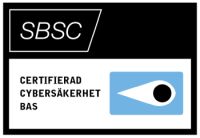Beskrivning
Generative AI is inevitably transforming the software industry. Tools like ChatGPT or GitHub Copilot enable developers to code more efficiently than ever before. While this sparks excitement, it also raises concerns, and so many stakeholders tend to balance this optimism with caution. Though these tools are advancing rapidly, to date they still lack the necessary sophistication to consider various subtle but important aspects of software products. This course emphasizes the importance of understanding this evolution through the well-established principles of Responsible AI.
The training then highlights the capabilities and limitations of generative AI (GenAI) tools – like GitHub Copilot, Codeium or others -, offering insights into their role in code generation and beyond. Topics include smart prompt engineering, not only during the implementation phase, but also during requirements capturing, design, testing, and maintenance. Participants will learn best practices and pitfalls of using AI-generated code, with hands-on labs demonstrating potential security flaws such as dependency hallucination and path traversal. By the end, software engineers and managers will have a clear understanding of how to responsibly integrate GenAI tools into the various stages of the software development lifecycle.
Outline
• A brief history of Artificial Intelligence
• Responsible AI
• An overview of AI and ML security
• Using GenAI responsibly in software development
• Summary and takeaways Standards and references
What you’ll have learned
• Understand various aspects of responsible AI
• Essentials of machine learning security
• How to use generative AI responsibly in software development
• Prompt engineering for optimal outcomes
• How to apply generative AI throughout the SDLC
Content
A brief history of Artificial Intelligence
The origins of AI
Neural networks and ”probability engines”
Robustness of ML systems
Early ML coding tools
The AI coding revolution of the 2020s
Responsible AI
What is responsible AI?
Explainability and interpretability
Safety, security and resilience
Mitigation of harmful bias
Reproducibility and consistency
Lab – Experimenting with reproducibility in Copilot
Security and responsible AI in software development
An overview of AI and ML security
A quick overview of ML for non-specialists
GIGO and other well-known ML pitfalls
Malicious use of AI
Real-life attacks against AI
Subverting AI to attack others
AI and ML security standards
A quick look at ML hacking: evasion
A quick look at ML hacking: poisoning
A quick look at ML hacking: model inversion
A quick look at ML hacking: model stealing
The security of large language models
- Security of LLMs vs ML security
- OWASP LLM Top 10
- Practical attacks on LLMs
- Practical LLM defenses
Using GenAI responsibly in software development
LLM code generation basics
Basic building blocks and concepts
GenAI tools in coding: Copilot, Codeium and others
Can AI… take care of the ’boring parts’?
Can AI… be more thorough?
Can AI… teach you how to code?
Lab – Experimenting with an unfamiliar API in Copilot
GenAI as a productivity boost
The dark side of GenAI
- Reviewing generated code – the black box blues
- The danger of hallucinations
- The effect of GenAI on programming skills
- Where AI code generation doesn’t do well
Prompt engineering techniques for code generation
- Why is a good prompt so important?
- Zero-shot, few-shot, and chain of thought prompting
- Lab – Experimenting with prompts in Copilot
- Using prompt patterns for code generation
- Software design patterns vs prompt patterns
- The 6 categories of prompt patterns
- Using various prompt patterns
- Best practices and pitfalls for code-generating AI prompts
- Least-to-Most: decomposition of complex tasks
- Lab – Task decomposition with Copilot
- The importance of examples and avoiding ambiguity
- Unit tests, TDD and GenAI
- Lab – Test-based code generation with Copilot
- Establishing the context for generative AI
- Lab – Experimenting with context in Copilot
- Enforcing and following token limits
Integrating generative AI into the SDLC
- Using GenAI beyond code generation
- Using AI during requirements specification
- Prompt patterns for requirements capturing
- Software design and AI
- Prompt patterns for software design
- Using AI during implementation
- Prompt patterns for implementation
- Lab – Finding hidden assumptions with Copilot
- Using AI during testing and QA
- Using AI during maintenance
- Prompt patterns for refactoring
- Lab – Experimenting with code refactoring in Copilot
- Prompt patterns for change request simulation
Security of AI-generated code
- Security of AI generated code
- Practical attacks against code generation tools
- Dependency hallucination via generative AI
- Case study – A history of GitHub Copilot weaknesses (up to mid 2024)
- A sample vulnerability
- Path traversal
- Lab – Path traversal
- Path traversal-related examples
- Additional challenges in Windows
- Case study – File spoofing in WinRAR
- Path traversal best practices
- Lab – Path canonicalization
- Lab – Experimenting with path traversal in Copilot
- Summary and takeaways
Responsible AI principles in software development
Resources and additional guidance
Note:
A must-have primer to those concerned about using GenAI tools in their software development projects. Building on these foundations, and depending on the technology stack, we suggest continuing with one of the Generative AI courses – see Code responsibly with generative AI in C++/Java/C#/Python. However, if you develop machine learning solutions, you can also continue your journey with the comprehensive 4-day Machine learning security course.
Kursen levereras i samarbete med








Recensioner
Det finns inga recensioner än.